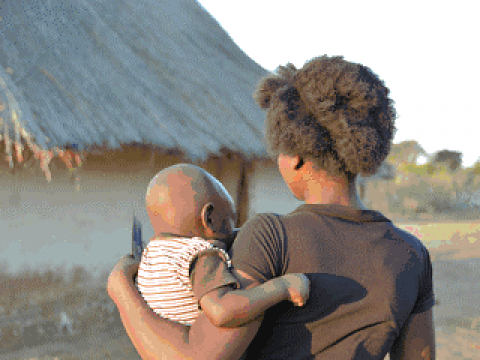A Situation Report on Child Marriages in Zambia

Zambia has one of the highest child marriage rates in the world with 42% of women aged 20-24 years married by the age of 18. Owing to the above facts, early child marriage has currently become a vital topic of discussion amongst several development platforms which has made it more visible to many that were unaware of its existence.
Former first lady, Dr. Christine Kaseba-Sata on the 10th of June 2014 in The Times of Zambia outlined that child marriage presented a serious challenge to development and needed to be criminalized. Later, Inonge Wina, Minister of Gender at the time, now Vice President of the Republic of Zambia, reinforced Dr Kaseba's remarks in The Post Newspaper dated 19th November 2014 by declaring child marriage a national crisis and also calling for its criminalization in Zambia.
Recently, First Lady Esther Lungu at the Organisation of African First Ladies Against HIV/AIDS(OAFLA) summit highlighted that the scenario of early marriages and pregnancies had become worrisome and that as first ladies, their goal was to try and find ways to eliminate or reduce early marriages and teen pregnancies. She further emphasised that as first ladies their agenda was advocacy for a free Africa with no child marriages.
At present, Zambia is ranked 16th amongst countries with the highest rate of child marriage in the world and although the Marriage Act establishes a legal age for marriage, and the Penal Code makes sex with a girl under 16 an offence in Zambia, these provisions rarely apply in customary law. Under statutory marriage however, child marriages are illegal, and considered a form of child abuse. The legal age for marriage under statutory law is 18 for females and 21 for males. ³On the other hand, under traditional law, marriage can take place at puberty, and it is common for girls to be married or have sexual relations under the age of 16.
Child marriage is associated with high levels of poverty; hence in Zambia it is seen as a rural phenomenon, although there are some reported cases of child marriages taking place in urban areas. Poverty leads many parents to withdraw their daughters' from school and offer them for marriage to older men (in most cases) in exchange for payment of 'lobola' (a dowry for the bride).
In addition to sexually transmitted infections and even HIV/AIDS and complications of early motherhood affect the social wellbeing of girls who go through child, early and forced marriage and deny them the right to enjoy their childhood.
The 2013 MDG Progress report points to child marriage as one of the triggers of maternal mortality. It is estimated that 38 mothers die each month due to complications relating to pregnancy and child birth in Zambia. These conditions are disproportionately pronounced among teen mothers. Thus, maternal mortality is still high and only declining at a very slow rate from 649 deaths/per 100,000 live births in 1997 to 483 (UNFPA 440) in 2010.
World Vision Zambia, in most its operational districts is working closely with the provincial and district line ministries and departments in order to curb the rising cases of child marriages in these areas. As a result of such collaboration, World Vision Zambia, under the Child Protection and Advocacy Project, successfully managed facilitate the withdrawal of 150 girls children from child marriages in the three project sites; Mweru, Luampa and Mpika ADPs during FY14.
In 2013, Zambia launched the campaign against child marriage which is being spearheaded by the Ministry of Chiefs and Traditional Affairs in close collaboration with Ministries of Health, Gender and Child Development, Community Development, Mother and Child Health, UNFP and Civil Society Organisations. Zambia and Canada sponsored the UN resolution to end child marriages which has since been passed. Zambia's Permanent Representative to the United Nations Dr. Mwaba Kasese-Bota led this effort.
World Vision Zambia was involved in the campaign launch and has been engaging the Ministry of Chiefs and Traditional Affairs (MOCTA) in the area of child marriage. Government has identified traditional leaders as one of the key drivers to the successful elimination of child marriages; hence, World Vision Zambia is also seeking to broaden collaboration with specific traditional leaders who are champions against child marriage and also sensitize the ones who are not seriously engaged through training and peer to peer visits with traditional leaders who champions in the area of child marriage and other issues that affect child well-being.
In July, 2014, the MOCTA in collaboration with the Graca Machel Trust held a National Symposium on Child Marriage and World Vision was identified as one of the organisations to sit on the technical committee.
Although strides have been made in the fight against child marriage, one of the major challenges is the lack of a specific policy and law on child, early and forced marriage which could go a long way in ensuring that it supports the activities that are currently being undertaken by civil society, government, traditional leaders and other stakeholders. Currently marriage can be contracted both under statutory and customary laws.